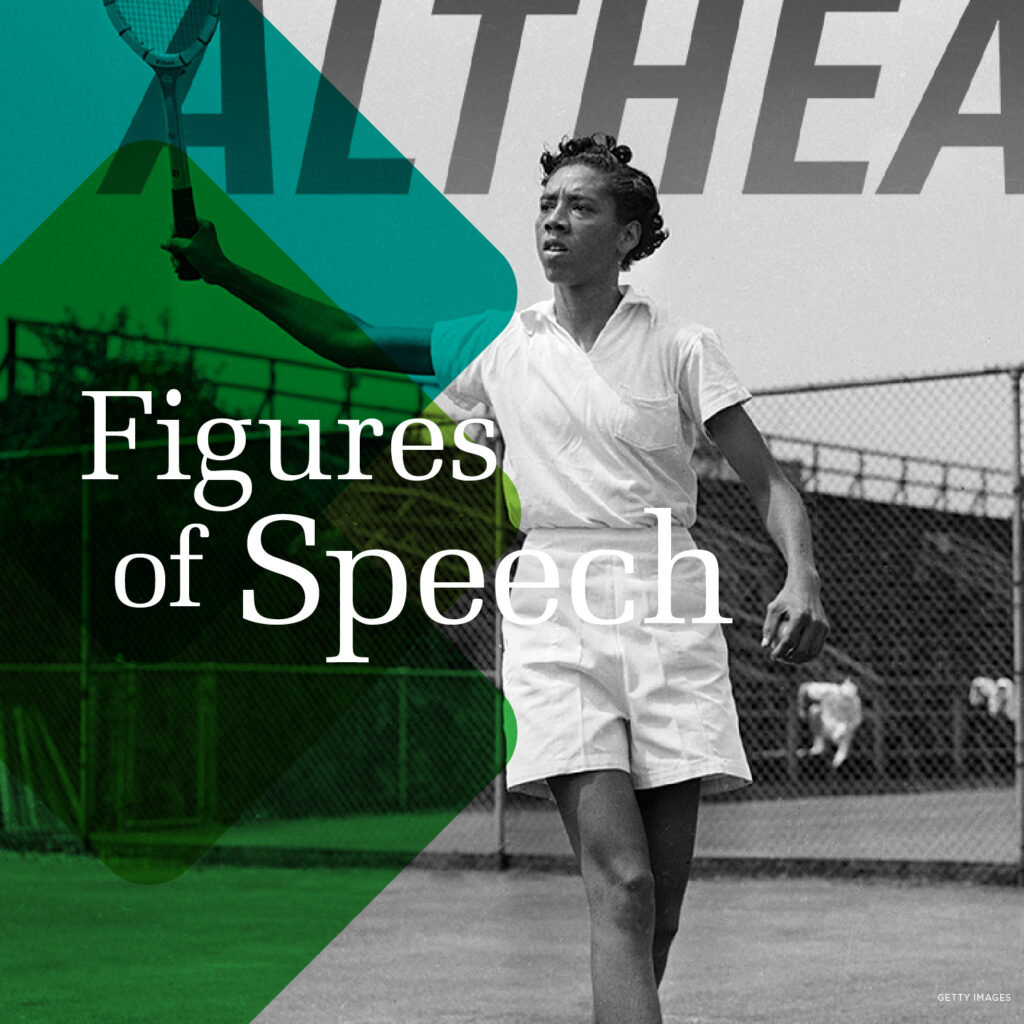Figures of Speech: The Althea Gibson Story


During a time rife with racial segregation and prejudices, one woman stepped onto the tennis court and changed the game. Althea Gibson, a trailblazing Black tennis player, shattered not only the color barrier in the world of professional tennis, but also single-handedly upended the gender roles that prevailed at the time. All while serving up one success after another. The story of Gibson’s incredible journey is a testament to her strength and determination.
Born August 25, 1927 in the small town of Silver, South Carolina, Gibson grew up in a time where opportunities were dishearteningly scarce. In search of a better life, she and her family moved to Harlem. Little did she know, however, that her love for sports, particularly tennis, would bring her unprecedented success and change the course of history.
Althea was a natural-born athlete and at 13 began playing paddle tennis on the streets of Harlem. Buddy Walker, one of the directors of the Police Athletic League, saw Gibson’s talent. She began playing on public courts uptown, drawing crowds of awed onlookers. In no time, she also drew the attention of Fred Johnson, the famous one-armed tennis coach who taught her how to play, setting her on a trajectory for fighting her way into professional competition.
As Althea Gibson’s prowess on the court continued to grow, so did her appetite for competing at the highest levels of the sport. In 1950, she made history by becoming the first African-American to compete in the United States National Championships (now the US Open). Her participation was a direct challenge to the segregation that plagued American sports at the time. Her groundbreaking debut was just the beginning. In 1956, Gibson achieved another remarkable feat, becoming the first African-American to win a Grand Slam title at the French Championships (now the French Open).
Althea Gibson’s storied career reached its pinnacle in 1957 when she won both Wimbledon and the US National Championships, becoming the first Black person to do so. Her success continued into 1958, as she defended both titles, securing her status as a true tennis legend. Throughout her illustrious career, Gibson captured a total of 11 Grand Slam titles in singles, doubles, and mixed doubles competitions. She later transitioned to professional golf, once again blazing a new trail as the first Black woman to join the Ladies Professional Golf Association (LPGA).
Beyond her monumental athletic accomplishments, Althea Gibson also played a role in the fight for racial equality, helping pave the way for future generations of African-American athletes. Superstars including Arthur Ashe, Venus Williams, and Serena Williams have all acknowledged the tremendous influence she had on their own careers.
In a PBS documentary about her life, Billie Jean King, another tennis legend, remarked, “If it hadn’t been for her, it wouldn’t have been so easy for Arthur, or the ones who followed.” Althea Gibson’s legacy continues to resonate today, reminding us of the power of perseverance and the importance of standing up against injustice.








